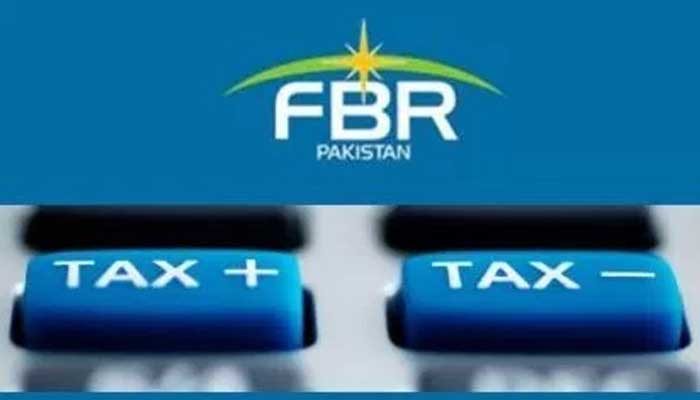FBR mulls withdrawing audit exemption
A FBR official confirmed that their inclusion into the FTR entails exemption from examination as evident in exclusion from the audit under policy 2018 issued by the FBR.
KARACHI: The Federal Board of Revenue (FBR) would convince the government to take out blanket immunity given to importers and stocks dealers from auditing under the final tax regime as it promotes money laundering and evasion, well-placed sources said on Saturday.
Tax managers advised the FBR to take up the matter with the government to quash the laws, which are promoting money laundering and tax evasion, the sources said.
Sources in the FBR said the present government restored some provisions in the final tax regime (FTR), which are potentially vulnerable to money laundering. It restored FTR on commission of stock brokers and commercial importers, in the Finance Supplementary (Second Amendment) Act 2019.
A FBR official confirmed that their inclusion into the FTR entails exemption from examination as evident in exclusion from the audit under policy 2018 issued by the FBR.
Checking of income and transactions of various trading activities is the prerequisite by the Financial Action Task Force (FATF). “It is surprising that when the country is facing difficult situation at the FATF the present government restored such provisions to allow blanket immunity from examination and audit,” a source said. The State Bank of Pakistan (SBP) has drafted a document to check money laundering in trade transactions to comply with the FATF recommendations.
“Transferring value through legitimate trade transactions has become increasingly attractive avenue for money launderers, terrorist financiers and proliferation financiers, as they are able to easily obscure their transactions in significant volumes of international trade and escape detection,” the SBP said a draft of ‘Framework for Managing Risks of Trade Based Money Laundering, Terrorist Financing and Proliferation Financing’.
The SBP further said the main methods by which such people transfer value through legitimate trade transactions are under invoicing, over-invoicing, short/over shipment, and obfuscation of type of goods/services.
The central bank advised the banks to verify the prices of underlying contracts as declared on electronic or manual import and export forms from reliable sources – local business circles, daily newspaper, internet, historic appraisements, and customs valuation rulings – at the time of processing letter of credit. The banks should ensure that the prices declared by their client represent the fair market. The FBR sources said the offices of Inland Revenue would not be able to ask the source of money arranged for letter of credit and also the declaration made at customs stage for imported goods in case of inclusion of importers into FTR.
A member of Tax Reforms Commission (TRC) said the present government didn’t pay heed to its recommendation. The previous government accepted the recommendations of TRC and withdrawn FTR provisions for commercial importers and stock brokers. “Their (commercial importers and commission agent) income should be subject to taxation on net income basis,” the commission said. “The tax deducted on imports stage shall be made adjustable against their net income.”
-
 Funeral Home Owner Sentenced To 40 Years For Selling Corpses, Faking Ashes
Funeral Home Owner Sentenced To 40 Years For Selling Corpses, Faking Ashes -
 Why Is Thor Portrayed Differently In Marvel Movies?
Why Is Thor Portrayed Differently In Marvel Movies? -
 Dutch Seismologist Hints At 'surprise’ Quake In Coming Days
Dutch Seismologist Hints At 'surprise’ Quake In Coming Days -
 Australia’s Liberal-National Coalition Reunites After Brief Split Over Hate Laws
Australia’s Liberal-National Coalition Reunites After Brief Split Over Hate Laws -
 DC Director Gives Hopeful Message As Questions Raised Over 'Blue Beetle's Future
DC Director Gives Hopeful Message As Questions Raised Over 'Blue Beetle's Future -
 King Charles New Plans For Andrew In Norfolk Exposed
King Charles New Plans For Andrew In Norfolk Exposed -
 What You Need To Know About Ischemic Stroke
What You Need To Know About Ischemic Stroke -
 Shocking Reason Behind Type 2 Diabetes Revealed By Scientists
Shocking Reason Behind Type 2 Diabetes Revealed By Scientists -
 SpaceX Cleared For NASA Crew-12 Launch After Falcon 9 Review
SpaceX Cleared For NASA Crew-12 Launch After Falcon 9 Review -
 Meghan Markle Gives Old Hollywood Vibes In New Photos At Glitzy Event
Meghan Markle Gives Old Hollywood Vibes In New Photos At Glitzy Event -
 Simple 'finger Test' Unveils Lung Cancer Diagnosis
Simple 'finger Test' Unveils Lung Cancer Diagnosis -
 Groundbreaking Treatment For Sepsis Emerges In New Study
Groundbreaking Treatment For Sepsis Emerges In New Study -
 Roblox Blocked In Egypt Sparks Debate Over Child Safety And Digital Access
Roblox Blocked In Egypt Sparks Debate Over Child Safety And Digital Access -
 Savannah Guthrie Addresses Ransom Demands Made By Her Mother Nancy's Kidnappers
Savannah Guthrie Addresses Ransom Demands Made By Her Mother Nancy's Kidnappers -
 OpenAI Reportedly Working On AI-powered Earbuds As First Hardware Product
OpenAI Reportedly Working On AI-powered Earbuds As First Hardware Product -
 Andrew, Sarah Ferguson Refuse King Charles Request: 'Raising Eyebrows Inside Palace'
Andrew, Sarah Ferguson Refuse King Charles Request: 'Raising Eyebrows Inside Palace'




